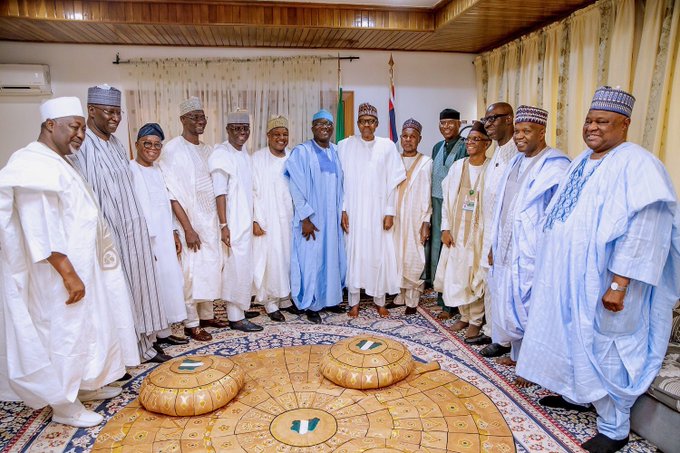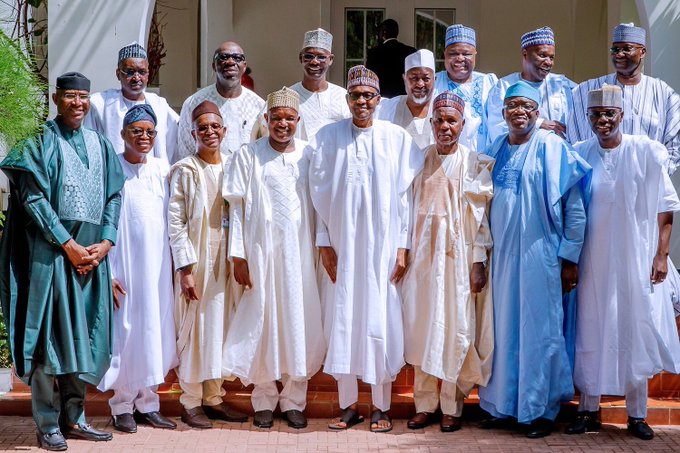Nigeria's border closures place further strain on a burdened economy, experts warn
NoireTv Africa
If you live in the USA, NoireTV now showing nationwide on Verizon Fios on channel 269. Press 269 on your remote control. NoireTV now on Verizon Fios Channel 269. Press 269 on your remote control. Follow us on Instagram @noiretvafrica and on Facebook ... www.facebook.com/caspennoire
Nigeria has shut down its land borders, restricting trade and further compounding an uncertain outlook for Africa’s largest economy.
Such a drastic move from one of Africa’s major players also casts doubt over the continent’s wider push toward free trade and cooperation.
The closure, ostensibly aimed at stemming flows of smuggled goods such as rice and tomatoes, effectively severed trade with neighboring Benin, Niger and Cameroon only months after Nigeria signed the landmark African Continental Free Trade Agreement, which plans to establish the world’s largest free trading bloc.
Underpinning the shutdown is a shift in economic policy intended to address some of the country’s domestic frailties by driving production at the expense of imports.
A recent International Monetary Fund mission to Nigeria concluded that the pace of economic recovery remains slow due to depressed private consumption and a wait-and-see approach from investors.
The economy grew 1.94% year-on-year in the second quarter of 2019, cooling from a 2.1% expansion in the previous quarter. However, since peaking in 2014, per capita GDP (gross domestic product) has been in decline as population growth outstrips that of GDP, meaning people are becoming poorer even as the economy grows.
“The access to capital has not been great because the government is crowding out the lending space,” Marshall Stocker, vice president and head of country research at investment firm Eaton Vance, told CNBC.
“Strong government expenditures combined with weak revenues means that the government has had to borrow a lot of money locally, so it is crowding out private borrowers. Banks are finding it more attractive to lend to the government.”
A second factor weighing on growth is policy uncertainty. President Muhammadu Buhari’s frequent medical absences, regularly delayed budgets and tardy cabinet appointments have all limited visibility on policy change and fed into ebbing confidence and lower economic growth, Stocker explained.
These headwinds could be behind some of the apparent aberrations in economic policy, culminating in the border shutdowns.
“To me, it looks like import substitution, or indigenization of the economy, meaning they want to build and grow everything themselves and import nothing,” Stocker told CNBC.
“This is a failed economic experiment — it won’t work out well. The policy change appears to be toward reducing free trade. They’ve limited imports, whether that’s on food goods or raw materials like palm oil, to try and encourage the local industries to develop, but in the end if the local industry does not have a comparative advantage in a tradable sector, you shouldn’t be building those industries.”
One of Buhari’s key policy pillars has been to stimulate the agricultural sector and reduce Nigeria’s dependence on oil, which accounts for around 85% of the country’s exports. The president in August urged the Central Bank of Nigeria (CNB) to stop providing foreign exchange for the importing of food into the country in a bid to catalyze agricultural production and enhance Nigeria’s food security.
In a statement issued in August, Buhari’s chief spokesman Garba Shehu said the president had told members of his ruling All Progressives Congress (APC) that “the foreign reserve will be conserved and utilized strictly for diversification of the economy, and not for encouraging more dependence on foreign food import bills.”
Palm oil has been a key target, since Nigeria was the largest producer of the commodity on the continent in 2018 but Benin was by far its largest exporter, with Nigeria a distant sixth. In 2015, the CBN named it among 41 items ruled ineligible for forex through the Nigerian interbank market, in a bid to incentivize domestic production.
President @MBuhari Tuesday in Daura, Katsina State, disclosed that he has directed the Central Bank of Nigeria to stop providing foreign exchange for importation of food into the country, with the steady improvement in agricultural production, & attainment of full food security.
840 people are talking about this
Eaton Vance research into Nigeria has, however, determined that the border closure does not represent any sound economic policy, but rather a decline in economic freedom. On top of that, it does not seem to be working, as recent Nigerian ports data shows that palm oil imports have continued to increase in 2019.
Another controversial move has seen the CNB recently mandate that banks expand their loans, increasing the minimum loan to deposit ratio in a bid to force lending to the private sector.
Stocker said this addressed the symptom but not the cause, which is excessively large government expenditures that need to be reduced in order to render banks less tempted to buy government bonds and reinvigorate interest in private sector investment.
“We’ve seen monetization of the fiscal deficit, which means the central bank funding fiscal expenditure, again something that cannot be sustained with a stable or pegged currency,” he said.
The recent IMF mission concluded that elevated fiscal deficits relying on central bank financing complicates monetary policy, and called for urgent action to reduce vulnerabilities and increase growth over the medium term.
“Managing vulnerabilities arising from large amounts of maturing CBN bills — including those held by non-residents —requires stopping direct central bank interventions, the introduction of longer-term government instruments to mop up excess liquidity and moving towards a uniform market-determined exchange rate,” IMF Nigeria Mission Chief Amine Mati said in his report.
Nigeria has recently appointed an Economic Advisory Council tasked with the design and implementation of a variety of policy overhauls. Stocker told CNBC that while this includes some “fairly sound market liberals with good economic reform ideas,” the initiative has yet to move beyond the status of a “talking shop.”
With reforms of the isolationist trade measures and monetization of fiscal policy, investors could capitalize on attractive Nigerian asset valuations and high yields, but he suggested that until then, foreign investors will continue to sell.
“Their equities are incredibly inexpensive, one of the least expensive in the world at less than five times earnings, 10% dividend yield. But you can make money in low quality policy environments until you don’t, and that will come in the form of taxation or devaluation,” he said.
“Even local pension funds are selling equities. It’s telling you that they see significant risks to the assets in their country, but if you can get in and out for a finite period before those risks materialize, because it’s a low economic freedom country, you will make an excess return,” he added.
Source: CNBC






Comments
Post a Comment